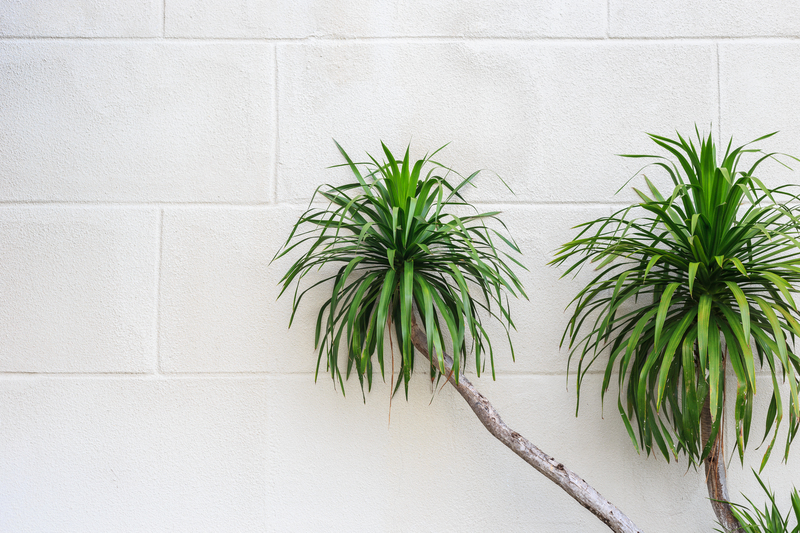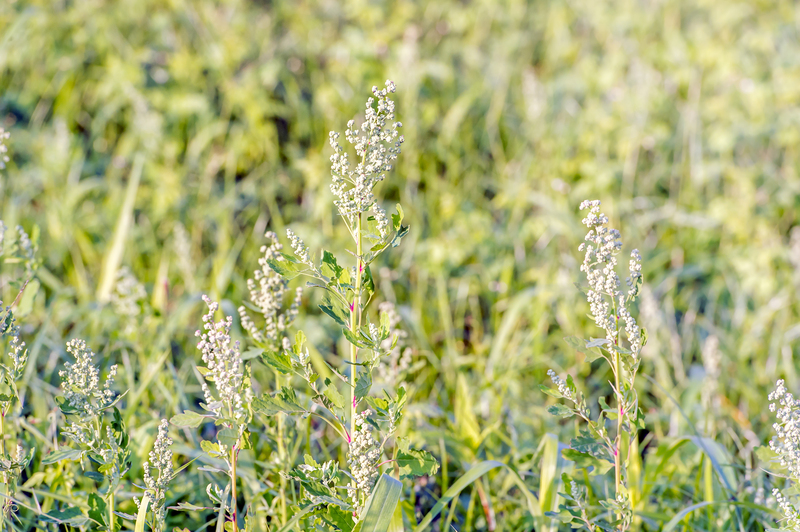Top 14 Helpful Bugs for Your Garden
Posted on 08/12/2024
A flourishing garden isn't just about having fertile soil and the right plants; it's also about having the right kinds of bugs. While we tend to associate bugs with pests, there are many insects that can play a beneficial role in your garden by controlling harmful pests, pollinating plants, and improving soil health. Here's a list of top 14 helpful bugs for your garden.
1. Ladybugs
Ladybugs are best known for their appetite for aphids. These tiny, colorful beetles can consume hundreds of aphids in a single day, keeping your plants safe from these common pests.

2. Lacewings
Lacewings are another strong contender for aphid control. Their larvae, known as "aphid lions," are voracious and can also consume mites, thrips, and other small insects.
3. Praying Mantises
These fascinating insects are generalist predators, meaning they consume a broad variety of pests including beetles, caterpillars, and even other beneficial insects. However, their predatory range generally tips the balance in favor of garden health.
4. Ground Beetles
Ground beetles are nocturnal hunters that prey on slugs, caterpillars, and other soil-dwelling pests. They also help to break down organic matter, promoting healthier soil.
5. Hoverflies
Hoverflies are excellent pollinators and their larvae, like lacewings, love to munch on aphids. This dual role makes them doubly beneficial in your garden.
6. Spiders
Although not technically insects, spiders are adept hunters that help manage populations of many unwanted bugs. They capture flies, mosquitoes, and beetles in their webs.
7. Braconid Wasps
These small parasitoid wasps lay their eggs inside of pests such as caterpillars and aphids. When the eggs hatch, the larvae consume the host insect from the inside out, effectively controlling their populations.
8. Tachinid Flies
These flies are parasitoids as well, preying upon caterpillars, beetles, and other pests. Adult tachinid flies also act as pollinators.
9. Bumblebees
Bumblebees are prolific pollinators, especially useful in pollinating crops like tomatoes, peppers, and strawberries. Their presence in your garden will lead to higher fruit yields.
10. Damsel Bugs
Damsel bugs are ferocious predators that consume aphids, caterpillars, and other soft-bodied insects. They're a great natural solution for pest control.
11. Assassin Bugs
Assassin bugs prey on a wide variety of insects, including caterpillars, beetles, and aphids. They use their long beak to inject a lethal fluid into their prey.
12. Soldier Beetles
These beetles are both predators and pollinators. As larvae, they feed on aphids, caterpillars, and other pests. Adults consume nectar and contribute to pollination.
13. Minute Pirate Bugs
Despite their small size, minute pirate bugs are effective predators of thrips, spider mites, and aphids. They can be a useful addition to your pest control arsenal.
14. Earthworms
While not insects, earthworms play a crucial role in enhancing soil health. They aerate the soil and break down organic matter, providing nutrients that benefit plant growth.
Pros and Cons of Beneficial Bugs
Pros:
1. Natural Pest Control: Beneficial bugs manage pest populations without the need for chemical pesticides.
2. Pollination: Some helpful bugs also aid in pollination, increasing crop yield.
3. Soil Health: Insects like earthworms enhance soil structure and nutrient content.
4. Biodiversity: A variety of bugs increases biodiversity, making your garden more resilient.
Cons:
1. Unintended Consequences: Some bugs, like praying mantises, might also consume other beneficial insects.
2. Attractiveness: Not all beneficial insects are visually appealing.
3. Control Difficulty: Natural control agents might not completely eradicate all pests.
Tips for Encouraging Beneficial Bugs
1. Plant a variety of flowers to provide nectar and pollen.
2. Avoid using broad-spectrum insecticides.
3. Provide habitats such as rocks, mulch, and water sources.
4. Introduce beneficial insects. You can buy and release them in your garden.

Takeaways
- Incorporating beneficial bugs into your garden can offer natural pest control, enhance pollination, and improve soil health.
- Encourage these insects by planting diverse flora and avoiding chemical pesticides.
- Keep in mind the pros and cons of introducing beneficial bugs to maintain a balanced ecosystem.
Conclusion
To maintain a healthy, productive garden, it's vital to recognize and encourage the presence of beneficial bugs. The top 14 helpful bugs listed above can elevate your gardening efforts, offering pest control, pollination, and soil health benefits. By adopting tips to attract these insects, you can create a thriving, sustainable garden environment.
Latest Posts
Essential Tools for Passionate Gardeners
Top 9 Gardening Tips for Newbies
Top Edible Wild UK Plants and Flowers



